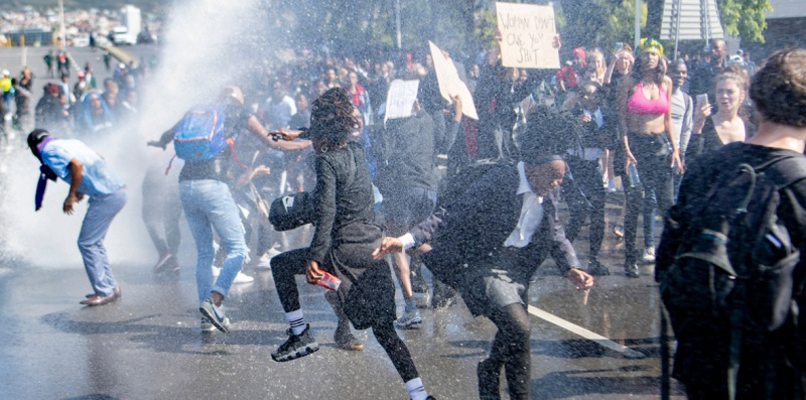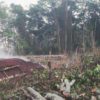Editor
S.Africa violence; Lessons for leaders and parents

South Africans wreck havoc in Johannesburg
The unprovoked violence that has been witnessed over the past week being committed by the people of South Africa against foreign nationals has alarmed many peace loving peoples across the continent and indeed the whole world.
Many observers have described the horrific events which have left dozens dead and property worth millions of dollars destroyed, as the epitome of barbarism, ignorance and poor leadership on the part of the second richest country on the continent.
The events have indeed shocked people to the core, and undermined people’s hopes of achieving meaningful unity on the African continent.
But these events must not be ignored especially by our leaders and parents because they have enormous implications for the peace and prosperity of the future generations.
One of the critical lessons to be learned is one that relates to the need for equitable distribution of wealth. As many people have observed, the violence in South Africa is misguided anger towards other Africans struggling to make a living in Madiba land. People like the popular comedian and South African-born TV personality Trevor Noah have argued that the root causes of discontent is unfair distribution of wealth.
The violence we have witnessed is a wake up call for the government of President Cyril Rwamaphosa and indeed his colleagues across other African countries to do their best to build more equitable societies.
The violence clearly shows that the continued denial of access to land and other social services can foment anger that can explode at any time. Since the end of apartheid in 1994, successive governments of South African have failed to tackle this challenge. In Uganda, a similar trend of rewarding the bush-war fighters is considered by some as a form of deprivation that could explode into violence.
As some people have pointed out, the rich cannot sleep when the poor are angry and awake.
The second lesson from South Africa is that we need to teach our children the virtues of peaceful co-existence as well as our history. It is the contention of many that had it not been for the support of other African countries, the black South Africans led by Nelson Mandela, would not have succeeded in defeating apartheid. Uganda alone helped to train the freedom fighters of the African National Congress, it educated many of them and gave them passports to travel across the world as Ugandans.
Many South Africans pride in the illusion that theirs is a democracy. They forget however that without peace, respect for individual and human rights, there cannot be peace. It is hoped that if South Africans were educated on this vital history, they would have thought twice before hurting their fellow Africans.
The third lesson is that all leaders must act responsibly and desist from making inflammatory statements that can incite ordinary people into needless acts of violence.
The current situation in South Africa has been blamed on the reckless comments of South Africa’s leading opposition leader Julius Malema.
We have seen that Ugandan politicians want to replicate some of the events in South Africa. For example, Ugandan MPs copied the Red barret fatigue from Malema’s movement. Indeed, we have seen that our MPs only recently adopted the militancy in their approach to civil issues, following in the footsteps of Malema’s behaviour.
The current violence in South Africa therefore has its roots in the history of violence that has been displayed by the leaders. Our prayer to our leaders is to abandon this militarism and pursue peaceful means of winning debates.
Comments



















